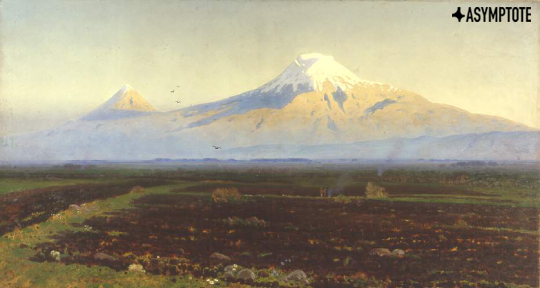Armenia is a small country with an enormous diaspora and a rich literary tradition—so why hasn’t more Armenian literature been translated into English? Today, Assistant Editor Andreea Scridon takes us on a tour of Armenian literary translation, introducing us to influential writers, both ancient and contemporary, who have yet to appear in English.
Many people in the English-speaking world, upon hearing of Armenia, naturally tend to think of the Armenian Genocide. While the recognition of a national tragedy beyond its borders is central to acts of both justice and healing, this notoriety can serve as a double-edged sword for a country’s culture. On the one hand, healing implies a significant act of transcendence, and so cross-border translation of Armenian literature has been important in the past for victims of the Genocide and presumably remains important for the Diaspora today. On the other hand, the works by (and about) Armenians that have received the most exposure have been those written in other languages, outside of Armenia. Franz Werfel’s The Forty Days of Musa Dagh (originally published in German in 1933) is the most notable example of this kind, creating a ripple effect immediately after the dramatic effects took place and raising awareness for the Armenian plight tremendously; decades later, Varujan Vosganian’s The Book of Whispers (first published in Romania in 2009) was longlisted for last year’s PEN America Award. Vasily Grossman’s An Armenian Sketchbook (originally written in Russian), along with two English-language books, Chris Bohjalian’s The Sandcastle Girls (Doubleday, 2012), and Elif Shafak’s The Bastard of Istanbul (Viking Press, 2006) have enjoyed great success and are examples of the many texts that make up a sort of canon on the subject. But although the topic of the Armenian Genocide remains relevant and important, the fact that none of the best-known books on the topic were written in the Armenian language point to a lacuna that continues to present a question mark today. What’s more, though the Genocide is a central point in Armenian history, we still don’t publish enough Armenian literature in translation. Let us take a trip through this part of the world, then, and explore its literary history. READ MORE…

